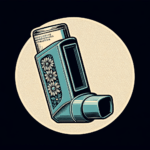If you find yourself constantly sneezing, wheezing, or dealing with a stuffy nose due to respiratory allergies, you may be wondering if there’s a solution out there for you. Look no further than immunotherapy. This innovative treatment has gained popularity in recent years and has shown promising results for those suffering from respiratory allergies. But what exactly is immunotherapy, and could it be the answer to your allergy woes? Let’s explore the potential of this treatment and how it could provide relief for your symptoms.
Understanding Immunotherapy
What is immunotherapy?
Immunotherapy is a type of treatment that stimulates and strengthens the body’s immune system to fight against diseases, including allergies. It is a targeted approach that focuses on the root cause of allergies – the immune system’s overreaction to harmless substances such as pollen or dust mites.
How does immunotherapy work?
Immunotherapy works by exposing an individual to small, controlled amounts of allergens over a period of time. This exposure helps the immune system develop a tolerance towards these allergens, reducing the severity of allergic reactions. The treatment can be administered through injections, sublingually (under the tongue), or via tablets.
Who can benefit from immunotherapy?
Immunotherapy can be beneficial for individuals suffering from respiratory allergies such as hay fever (allergic rhinitis) or allergic asthma. If you experience recurring symptoms such as sneezing, stuffy or runny nose, itchy eyes or throat, coughing, wheezing, or shortness of breath due to allergies, immunotherapy may be a suitable option for you.
Respiratory Allergies and Immunotherapy
Types of respiratory allergies
Respiratory allergies encompass a range of conditions caused by allergens in the air we breathe. The most common types include allergic rhinitis (hay fever) and allergic asthma. Allergic rhinitis is characterized by symptoms such as sneezing, nasal congestion, and itchy, watery eyes. Allergic asthma, on the other hand, involves symptoms like wheezing, coughing, and shortness of breath.
Symptoms of respiratory allergies
Respiratory allergies can cause a wide range of symptoms, which can vary in severity from person to person. Common symptoms include sneezing, runny or stuffy nose, itching in the nose, eyes, or throat, watery eyes, coughing, wheezing, and shortness of breath. These symptoms can significantly impact one’s quality of life and daily activities.
Traditional treatment options for respiratory allergies
Traditional treatment options for respiratory allergies primarily focus on managing the symptoms. These include over-the-counter or prescription antihistamines, decongestants, nasal sprays, and eye drops. While these medications can provide temporary relief, they may not address the underlying cause of the allergies or provide long-term benefits.
How immunotherapy can help with respiratory allergies
Immunotherapy offers a unique approach to treating respiratory allergies by targeting the root cause – the immune system’s overreaction to allergens. By gradually exposing the body to small amounts of allergens, immunotherapy helps the immune system build tolerance and reduce the severity of allergic reactions. This can lead to long-lasting relief and potentially even prevent the development of new allergies.
Types of Immunotherapy
Subcutaneous immunotherapy (SCIT)
Subcutaneous immunotherapy, also known as allergy shots, is a type of immunotherapy that involves injecting small amounts of allergens under the skin. These injections are typically administered by a healthcare professional and initially require frequent visits to gradually increase the dosage. SCIT is an effective option for individuals with severe allergies or those who do not respond well to other treatments.
Sublingual immunotherapy (SLIT)
Sublingual immunotherapy is an alternative form of immunotherapy that involves placing allergen extracts under the tongue. Unlike SCIT, SLIT does not require injections and can be self-administered at home after proper instruction from a healthcare professional. SLIT is especially suitable for individuals with milder allergies or those who are averse to needles.
Effectiveness and Safety of Immunotherapy
Studies on the effectiveness of immunotherapy for respiratory allergies
Numerous studies have shown that immunotherapy is highly effective in reducing symptoms and improving the quality of life for individuals with respiratory allergies. Research has demonstrated long-term benefits, with some individuals experiencing a significant reduction in symptoms even after the completion of treatment. Immunotherapy has also been found to be particularly effective in preventing the progression of allergic rhinitis to allergic asthma.
Potential risks and side effects of immunotherapy
While immunotherapy is generally safe, there are potential risks and side effects to consider. The most common side effects include redness, swelling, or itching at the injection site for SCIT, or itching or tingling in the mouth for SLIT. In rare cases, severe allergic reactions can occur, which is why immunotherapy should always be administered under the supervision of a healthcare professional.
Who should avoid immunotherapy?
Immunotherapy may not be suitable for everyone. It is generally not recommended for individuals with severe or uncontrolled asthma, certain autoimmune diseases, or those who are unable to commit to the treatment schedule. Additionally, pregnant women or individuals with certain medical conditions may need to avoid or postpone immunotherapy. It is essential to consult with an allergist or immunotherapy specialist to determine if immunotherapy is the right choice for you.
Process of Immunotherapy
Allergy testing
Before starting immunotherapy, allergy testing is typically conducted to identify the specific allergens to which an individual is allergic. This can be done through skin prick tests, blood tests, or sometimes a combination of both. By pinpointing the allergens causing the allergic reactions, personalized immunotherapy treatment plans can be developed.
Building up the dosage
After allergy testing, the immunotherapy treatment begins by gradually increasing the dosage of allergens. For SCIT, this involves receiving injections containing increasing concentrations of allergens over a period of several months. For SLIT, the dosage is built up by taking sublingual tablets or drops, with the concentration increasing at regular intervals. The goal is to reach a maintenance dosage that effectively desensitizes the immune system.
Maintenance phase
Once the maintenance dosage is reached, the frequency of immunotherapy visits is typically reduced. For SCIT, this often means receiving injections every few weeks or months. For SLIT, the frequency may be reduced to daily or a few times a week depending on the treatment plan. The maintenance phase can last for several months to several years, depending on individual response and the guidance of a healthcare professional.
Duration of treatment
The duration of immunotherapy treatment varies depending on several factors, including the individual’s response to treatment and the severity of allergies. In general, immunotherapy can range from three to five years. However, some individuals may continue treatment for a longer period to ensure the best possible results. It is important to follow through with the entire course of treatment as prescribed by the healthcare professional to maximize the benefits.
Benefits of Immunotherapy for Respiratory Allergies
Long-term reduction in symptoms
One of the primary benefits of immunotherapy is its ability to provide long-term relief from respiratory allergy symptoms. Unlike medications that only alleviate symptoms temporarily, immunotherapy addresses the underlying cause of allergies, leading to a reduction in the frequency and severity of allergic reactions. This can significantly improve the quality of life for individuals with respiratory allergies.
Potential prevention of new allergies
Immunotherapy has been found to have a preventive effect, potentially stopping the progression of allergic rhinitis to allergic asthma. By desensitizing the immune system to specific allergens, immunotherapy can reduce the risk of developing new allergies or complications associated with untreated respiratory allergies. This preventive aspect of immunotherapy can provide long-lasting benefits and improve overall respiratory health.
Reduced need for medication
Immunotherapy can significantly decrease the reliance on allergy medications such as antihistamines, nasal sprays, or decongestants. As the immune system becomes desensitized to allergens, the frequency and severity of allergic reactions decrease, resulting in reduced need for symptom relief medications. Not only does this save on medication costs, but it also reduces the potential side effects associated with long-term medication use.
Improved quality of life
By effectively managing respiratory allergy symptoms, immunotherapy can greatly enhance the quality of life for individuals affected by allergies. With fewer days lost due to severe symptoms, individuals can engage in social activities, work, exercise, and enjoy outdoor pursuits without constant discomfort or worry. Improved sleep and overall wellbeing are additional benefits that contribute to a better quality of life.
Limitations and Considerations
Time commitment
Immunotherapy requires a time commitment, particularly during the build-up phase where frequent visits to healthcare providers may be necessary. Depending on the treatment plan, immunotherapy visits may be required for several months or years. It is essential to consider this time commitment and ensure that you are able to attend appointments regularly to achieve the desired results.
Cost of immunotherapy
Immunotherapy can be a significant financial investment. The cost varies depending on factors such as the type of immunotherapy, the duration of treatment, and healthcare provider fees. It is important to discuss the cost implications with your healthcare provider and explore potential insurance coverage or financial assistance options to make an informed decision.
Potential allergic reactions
Although rare, there is a risk of experiencing allergic reactions during immunotherapy. These reactions can range from mild symptoms such as itching or swelling at the injection site to severe reactions like difficulty breathing or anaphylaxis. That is why it is crucial to undergo immunotherapy under the supervision of a healthcare professional who can promptly address any adverse reactions that may occur.
Individual response and effectiveness
The effectiveness of immunotherapy can vary depending on the individual. While most individuals experience significant improvement in symptoms, some may have a more modest response. It is important to have realistic expectations and understand that the results may vary from person to person. Discussing potential outcomes with your healthcare provider can help manage expectations and make an informed decision.
Choosing Immunotherapy for Respiratory Allergies
Consulting with an allergist or immunotherapy specialist
Before making a decision about immunotherapy, it is crucial to consult with an allergist or immunotherapy specialist. These healthcare professionals can evaluate your medical history, conduct allergy testing, and provide personalized recommendations based on your specific needs and circumstances. They can explain the benefits, risks, and potential outcomes of immunotherapy, allowing you to make an informed decision.
Evaluating personal medical history
An assessment of your personal medical history is essential to determine if immunotherapy is a suitable option. Your healthcare provider will consider factors such as the severity and duration of your respiratory allergies, any coexisting medical conditions, and your overall health status. This evaluation helps ensure that immunotherapy is safe and appropriate for your individual situation.
Considering lifestyle factors
It is important to consider how immunotherapy treatment may fit into your lifestyle. The time commitment required for appointments, the potential need for travel to the healthcare provider’s office, and any other lifestyle constraints should be taken into account. Discussing these factors with your healthcare provider can help determine if immunotherapy is feasible and suitable for your lifestyle.
Weighing the benefits and limitations
When deciding if immunotherapy is the right choice for your respiratory allergies, it is crucial to weigh the benefits against the limitations. Consider the potential reduction in symptoms, decreased reliance on medications, and improved quality of life that immunotherapy can offer. Evaluate the time commitment, cost, and potential risks alongside these benefits to make an informed decision that aligns with your preferences and goals.
Alternative Treatment Options
Medications for respiratory allergies
Medications, both over-the-counter and prescription, are commonly used to manage respiratory allergies. These include antihistamines, decongestants, nasal sprays, and eye drops. Medications can provide temporary relief from symptoms but do not address the underlying cause of allergies. They are often used in conjunction with other treatment options or as a short-term solution.
Allergy avoidance and environmental control
One way to manage respiratory allergies is through allergen avoidance and environmental control. This involves taking steps to minimize exposure to allergens, such as keeping windows closed during high pollen seasons, using air purifiers, and regularly cleaning bedding and carpets. Avoiding triggers and creating an allergen-free environment can provide some relief, especially for individuals with milder allergies.
Natural remedies and complementary therapies
Some individuals explore natural remedies and complementary therapies to manage respiratory allergies. These can include herbal supplements, nasal saline rinses, acupuncture, or chiropractic treatments. While these approaches may provide some relief for certain individuals, it is important to discuss them with your healthcare provider to ensure safety and effectiveness.
Conclusion
Is immunotherapy right for you? When it comes to respiratory allergies, immunotherapy can be a highly effective and safe treatment option. By addressing the root cause of allergies and building tolerance, immunotherapy offers the possibility of long-term symptom reduction, prevention of new allergies, and reduced reliance on medications. However, it is crucial to consult with an allergist or immunotherapy specialist to evaluate your medical history, consider lifestyle factors, and weigh the benefits against the limitations. Making an informed decision and discussing your options with healthcare providers can help you determine if immunotherapy is the right choice to manage your respiratory allergies effectively.












